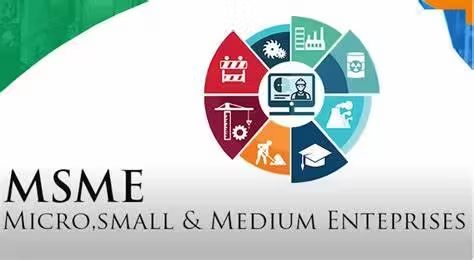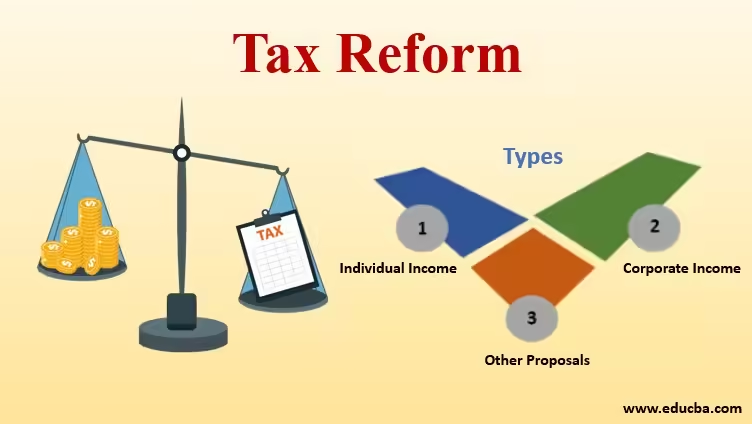The Union Budget 2024, presented by Finance Minister Nirmala Sitharaman, has introduced several significant measures aimed at boosting the economy, creating jobs, and supporting various sectors.
Here are the key highlights and Implications of Budget 2024:
1. Focus on Employment and Skilling in Budget 2024

The Union Budget 2024 places a significant emphasis on employment generation and skill development, recognizing these as crucial for economic growth and social stability. Here are the key highlights:
- Increased Funding for Skill Development:
- The budget allocates ₹1.48 lakh crore towards education, employment, and skilling initiatives. This is a substantial increase from the previous year’s allocation, aimed at enhancing the skill sets of the workforce.
- Job Creation Initiatives:
- The government has announced plans to create over 4 crore jobs over the next five years through various schemes. These initiatives are designed to provide ample employment opportunities, particularly for the youth.
- Support for MSMEs:
- Recognizing the role of Micro, Small, and Medium Enterprises (MSMEs) in job creation, the budget includes enhanced credit guarantee schemes and financial support to help these businesses grow and hire more employees.
- Incentives for Businesses:
- To encourage businesses to hire more workers, the budget introduces tax incentives and subsidies. This is expected to boost employment in key sectors such as manufacturing and IT.
- Skill Development Programs:
- Additional funds have been allocated to existing skill development programs, aiming to train 10 million individuals over the next year. These programs focus on equipping the workforce with the necessary skills to meet industry demands.
The focus on employment and skilling in the 2024 budget is a strategic move to ensure sustainable economic growth and improve the quality of life for millions of Indians.
2. Support for MSMEs

The Union Budget 2024 has introduced several measures to support Micro, Small, and Medium Enterprises (MSMEs), recognizing their crucial role in the economy. Here are the key highlights:
- Enhanced Credit Guarantee Scheme:
- The budget has increased the allocation for the credit guarantee scheme to ₹50,000 crore. This scheme provides easier access to loans for MSMEs, reducing the risk for lenders and encouraging more lending.
- Mudra Loan Limit Increase:
- The limit for Mudra loans has been doubled from ₹10 lakh to ₹20 lakh. This aims to boost the startup ecosystem and provide more financial support to small and micro enterprises.
- Financial and Technological Support:
- A comprehensive package has been formulated, covering financial, regulatory, and technological support for MSMEs. This includes subsidies and grants to help MSMEs invest in new technologies and expand their operations.
- New Credit Assessment Model:
- Public sector banks will develop a new credit assessment model based on the digital footprint of MSMEs. This model aims to improve credit eligibility assessments and provide better access to financing.
- Support During Stress Periods:
- A new mechanism has been introduced to facilitate the continuation of bank credit to MSMEs during their stress periods without collateral or third-party guarantees.
These measures are designed to help MSMEs grow, compete globally, and contribute significantly to job creation and economic development.
3. Tax Reforms

The Union Budget 2024 has introduced several significant tax reforms aimed at simplifying the tax process and providing relief to taxpayers. Here are the key highlights:
- Income Tax Slabs:
- The budget has revised the income tax slabs, raising the exemption limit to ₹5 lakh. This change is expected to provide relief to a large number of taxpayers, particularly in the middle-income group.
- Capital Gains Exemption:
- The capital gains exemption limit has been increased to ₹1.25 lakh annually. This move aims to encourage investments and provide relief to small investors.
- Taxation on Share Buybacks:
- The budget has introduced a new tax on income receipts from share buybacks. This measure is intended to ensure that companies distributing profits through buybacks contribute to the tax revenue.
- Simplification of Tax Laws:
- A comprehensive review of the Income Tax Act of 1961 has been announced, aimed at reducing disputes and litigation. This reform is expected to make the tax system more transparent and taxpayer-friendly.
- Increased Deductions:
- Enhanced deductions for investments in housing, education, and health insurance have been introduced. These changes are designed to encourage savings and investments among taxpayers.
These tax reforms are part of the government’s broader strategy to simplify the tax system, reduce the burden on taxpayers, and promote economic growth.
4. Infrastructure Development in Budget 2024
The Union Budget 2024 has placed a strong emphasis on infrastructure development, recognizing it as a key driver for economic growth and modernization. Here are the key highlights:
- Capital Expenditure:
- The budget has allocated ₹11.1 lakh crore for capital investment in infrastructure, marking an 11% increase over the previous year’s budget. This significant investment aims to boost sectors such as transportation, urban development, and energy.
- Transportation:
- A substantial portion of the budget is dedicated to improving transportation infrastructure. This includes ₹2 lakh crore for road and rail infrastructure enhancements, aimed at improving connectivity and reducing travel times.
- Urban Development:
- Funding for smart city projects and urban renewal initiatives has been increased. These projects focus on making cities more livable and sustainable, with investments in modernizing public amenities and infrastructure.
- Energy Projects:
- Investments in energy infrastructure, including renewable energy projects and the modernization of the power grid, are a major focus. This includes significant funding for solar, wind, and other renewable energy sources.
- Climate Resilience:
- The budget also emphasizes climate resilience, with investments aimed at improving infrastructure to withstand climate-related challenges. This includes projects to enhance water management, flood control, and disaster preparedness.
These measures are designed to create a robust infrastructure framework that supports economic growth, improves quality of life, and ensures sustainable development.
5. Women-Led Development in Budget 2024
The Union Budget 2024 has introduced several initiatives aimed at promoting women-led development, recognizing the crucial role of women in economic growth. Here are the key highlights:
- Significant Allocation:
- The budget allocates over ₹3 lakh crore for schemes benefiting women and girls. This substantial investment underscores the government’s commitment to enhancing women’s participation in the economy.
- Working Women Hostels:
- Plans to establish working women hostels in collaboration with industries have been announced. These hostels aim to support women in the workforce by providing safe and affordable accommodation.
- Crèches and Childcare Facilities:
- The budget includes provisions for setting up crèches to support working mothers. This initiative is designed to help women balance work and family responsibilities more effectively.
- Market Access for Women’s SHGs:
- Efforts to improve market access for women’s Self-Help Group (SHG) enterprises are a key focus. This includes support for women entrepreneurs to expand their businesses and reach new markets.
- Skilling Programs:
- Targeted skilling programs for women have been introduced to enhance their employability and entrepreneurial skills. These programs aim to equip women with the necessary skills to succeed in various industries.
These measures are designed to empower women economically and socially, fostering a more inclusive and equitable society.
6. Green Energy and Sustainability in Budget 2024
The Union Budget 2024 has introduced several initiatives to promote green energy and sustainability, aligning with India’s commitment to environmental protection and sustainable development. Here are the key highlights:
- Increased Allocation for Renewable Energy:
- The budget has increased the allocation for the Ministry of New and Renewable Energy by 25.71%, bringing it to ₹12,850 crore. This significant investment aims to support the expansion of solar, wind, and other renewable energy projects.
- PM Surya Ghar Muft Bijli Yojana:
- This new scheme aims to equip 1 crore households with rooftop solar installations, providing up to 300 units of free electricity each month. Over 1.28 crore registrations and 14 lakh applications have already been received.
- Pumped Storage Policy:
- A robust Pumped Storage Policy will be introduced to enhance the storage and integration of renewable energy. This initiative aims to provide a large-scale solution for storing excess electricity, facilitating smoother integration of renewable sources into the energy mix.
- Support for Hard-to-Abate Industries:
- The government will formulate a roadmap to transition hard-to-abate industries from energy efficiency targets to emission targets. This includes appropriate regulations to shift from the current Performance, Achieve and Trade (PAT) mode to the Indian carbon market mode.
- Advanced Ultra Super Critical (AUSC) Technology:
- Public sector giants NTPC Ltd and BHEL will launch a joint venture to set up an 800 MW commercial power plant based on AUSC technology, with government financial support.
These measures are designed to accelerate India’s transition to a sustainable energy future, reduce dependence on fossil fuels, and promote environmental sustainability.
7. Social Justice and Welfare in Budget 2024
The Union Budget 2024 has introduced several measures aimed at promoting social justice and welfare, focusing on supporting marginalized communities and ensuring equitable growth. Here are the key highlights:
- Increased Funding for Social Welfare Programs:
- The budget has allocated ₹30,000 crore for various social welfare programs. This funding aims to support marginalized communities, including scheduled castes, scheduled tribes, and other backward classes.
- Education and Healthcare Access:
- Significant investments have been made to improve access to quality education and healthcare for underprivileged sections of society. This includes funding for scholarships, school infrastructure, and healthcare facilities in rural and underserved areas.
- Support for Tribal Affairs:
- The budget includes increased allocations for the Ministry of Tribal Affairs, focusing on the development and welfare of tribal communities. This includes initiatives to improve living conditions, education, and employment opportunities for tribal populations.
- Poverty Alleviation:
- Various poverty alleviation programs have been strengthened, with increased funding and new initiatives aimed at reducing poverty and improving living standards for the poorest sections of society.
- Human Rights and Anti-Discrimination Measures:
- The budget emphasizes the protection and promotion of human rights, with measures to combat discrimination and ensure that all citizens can live free from prejudice and inequality.
These measures are designed to create a more inclusive and equitable society, ensuring that all citizens have access to the resources and opportunities they need to thrive.
